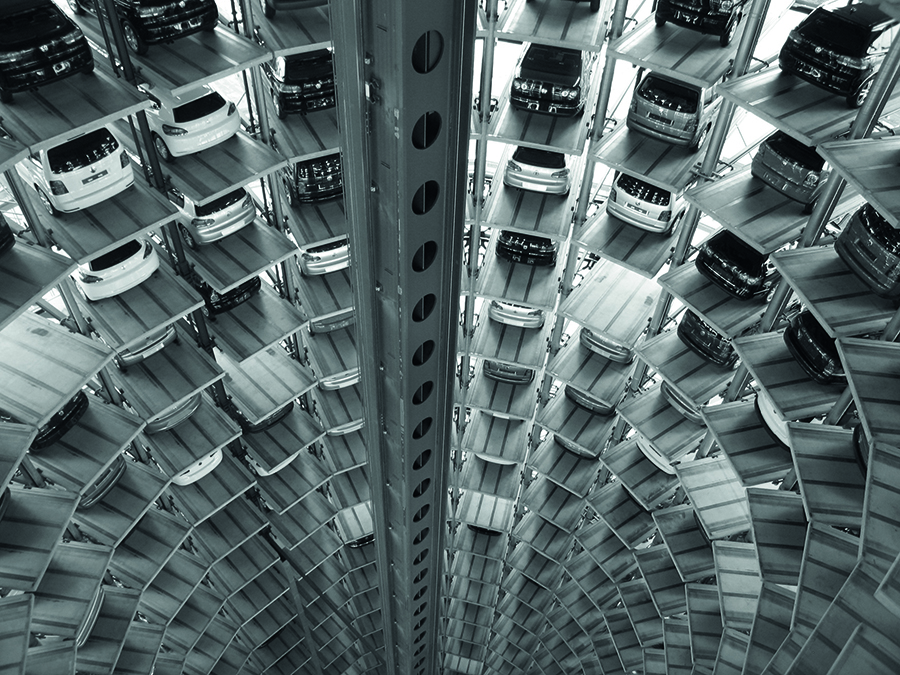Originally published June 2021.
Prices are too high, availability too low, and the charging network is a dog’s breakfast. Hold your horses – or just get a bike.
Tackling climate change makes fixing the pandemic “look easy”, according to Bill Gates, and change is upon us. Cars are going electric. Jaguar will be EV-only (electric vehicle) by 2025; all UK vehicles must be emissions-free by 2035; and tahe Petrolhead Society is considering rebranding to Batteryhead. There is only one problem – EVs are crap right now.
When the lease on my Audi A6 estate ran out, my conscience kicked in. On average, a car emits between six and nine tonnes of greenhouse gases a year, so I started researching EVs. First up was a Lexus RX with promises of fancy hybrid technology. But hang on – the CO2 emissions were higher than for my Audi A6 (180g/km versus 168g/km). Er, what’s the point of the hybrid if it pollutes more than a normal car? The Lexus salesperson squirmed and bullshitted and we exited stage left. First lesson: beware the marketing claims of hybrids.
I test drove a Kia Nero. This is a fantastic car – a range of 350 miles and serious acceleration. Just about big enough for a couple of suitcases and a dog, though perhaps not at the same time. Ignoring the brand’s profound lack of sex appeal, I said: “Great! I’ll take it.” The reply: “Ah, there is one problem. We don’t have any. If you pay £1,000 then at some point next year you’ll get the car.” Second lesson: check the availability before you test-drive.
The third lesson is that there are very few mid-market cars. The Kia sold out as it is the only EV that isn’t a £70,000 SUV or a city runaround. Eventually I leased an Audi e-tron. It is expensive and ugly, as if the designers argued over whether to build an estate car or an SUV and smashed the two models together in a fit of German pique.
To drive, the e-tron is a beast. With no combustion engine, the power comes flowing out of the motor and the acceleration feels ten times that of the Audi A6. The ride is silent (which feels bizarre), the cockpit is full of gorgeous electronics, and generally it is a dream.
On to the charging. The e-tron does 220 miles in the summer but only 180 miles in the winter – hmm, they don’t put that in the brochure. It is £550 to install a 7kW charger at home, and the 90kWh engine takes 13 hours to charge. That is fine; it’s no problem to charge it overnight.
But leave home and the troubles start. A 22kW charger takes four to six hours, so you need a 50kW charger. All motorway service stations have them and it takes 90 minutes to charge to 80%. How much fun are service stations for 90 minutes? They are painful for just ten. By 40 minutes your partner is calling a divorce lawyer, your children are calling adoption agencies, and the reflux from your fast food binge is threatening to spoil the upholstery. Meanwhile, your car is only 45% charged. Also, like broadband, the chargers never work at the claimed speed. A 50kWh charger operates at 43kWh on a good day. They don’t tell you that in the brochure either.
Quickly you discover the dirty secret of the industry: the charging network is a dog’s dinner. Many of the chargers do not work, and for some reason the 20-plus charging companies take ages to fix them. My three nearest motorway chargers are run by Ecotricity at Welcome Break services. All three are broken. I call Ecotricity to ask why, and they blame Brexit supply chains and vermin; the charger at Junction 10 on the M40 has “rodent damage”. Forget “Freddie Starr ate my hamster” – now it’s “the rats ate our charger”. You don’t get that with petrol pumps.
I ask Welcome Break if it is acceptable for the only chargers at their stations to be broken – imagine if that happened with the petrol pumps. They deflect the question, instead issuing a statement about “investing in […] and supporting demand” for charging. What, in the same way that G4S supported the Olympics with security?
I’m sick of being asked: “Why didn’t you buy a Tesla?” The answer is that I’m an inverted snob. The cars look like bloated, decomposing otters and I don’t want to worship at Elon’s altar. It turns out that is my loss; Teslas have a 350‑mile range and charge to 80% in 40 minutes, as Tesla makes both the car and the chargers. This victory for vertical integration makes the e-tron look like a fat waste of money. Which it is. Beware, though, that Teslas have a nasty hidden side-effect: owners often develop terminal smugness. Elon is working on a cure.
“Forget ‘Freddie Star ate my hamster’ – now it’s ‘the rats ate our charger’. You don’t get that with petrol pumps”
My first-world moaning aside, things are improving. By 2026 all of Ford’s cars will be electric or hybrid; currently only one model is (the Mustang, and it’s £40,000). Two years ago there was one type 2 150kWh charger in the UK; now there are more than sixty. BP has bought Chargemaster, one of the biggest charging networks, because in the long term what the hell is it going to do with its petrol stations? Its chargers always seem to work too. The happiest EV owners I know drive BMW i3s, which are perfect runarounds and have a small emergency petrol tank. However, these i3s are not driving down to Cornwall; their owners have a Volvo/Discovery for that.
So, should you buy an EV? Or is it better for the environment just to keep your petrol car for years? I ask Greenpeace, and their strong line is that you should buy a two-wheeled car with no engine – it’s called a bicycle – but if you really must drive, then you should switch to an EV immediately, if you can. They say that 10% of the carbon footprint of a car is the manufacturing; 85% is fuel; 5% is the disposal.
But I would wait a year or two before going electric. The supply of new EV models will grow, ranges will widen, costs will eventually come down (the e-Golf and MINI Electric have a £5,000 premium today), and charging speeds will (hopefully) improve. Meanwhile the government has another problem. By legislating for EVs it will forgo £30bn a year from fuel duty, which is around 25% of the NHS’s annual costs. Another one for Rishi’s to-do list.
Postscript: As we went to press, Gridserve announced a deal to upgrade the Ecotricity charging estate…








